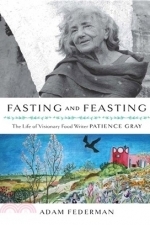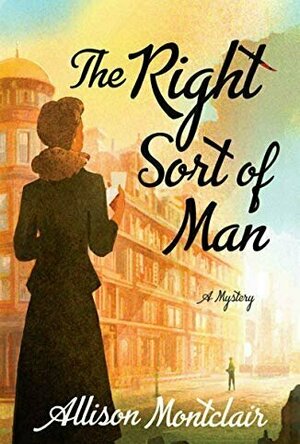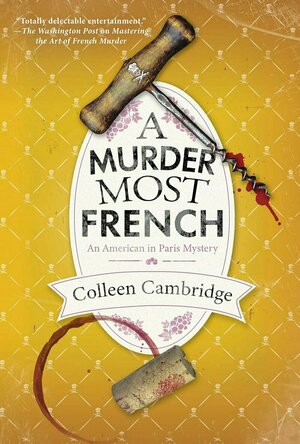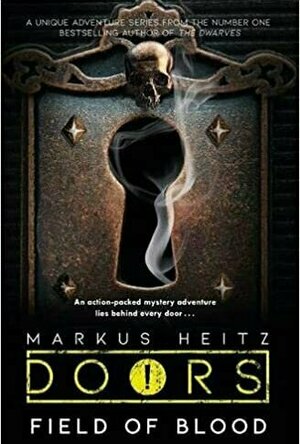Search
Search results

Fasting and Feasting: The Life of Visionary Food Writer Patience Gray
Book
Patience Gray, author of cult autobiographical cookery book Honey from a Weed (and for many years a...
Biography food

Hidden Valley Road
Book
Don and Mimi Galvin seemed to be living the American dream. After World War II, Don's work with the...
Hazel (2934 KP) rated The Polish Wife (The Secret Resistance Series) in Books
Apr 4, 2023
I am gradually getting into reading historical fiction and it is through excellent writers like Gosia Nealon that has kept me seeking out something I wouldn't normally consider.
The Polish Wife is part of The Secret Resistance series but the first I have read; I will say that I think it worked as a standalone very successfully.
Although this is a work of fiction, it feels realistic and I can imagine many of the experiences and events written about in this book are similar to what actually happened at various times throughout World War II. What I do know is that any member of the resistance, be they Polish, French, British, etc., were extremely brave individuals and I think Gosia captured that courage very well.
The Polish Wife is, however, more than a story about the fight against the Nazi regime, it's also about love, honour, freedom, survival and hope. The characters Gosia has created are strong and believable and the story if easy to follow but with twists that will have you holding your breath waiting for the outcome which was definitely not a foregone conclusion.
The Polish Wife is one of the top books of this genre I have read so far; I became totally invested and engrossed from the start and I wouldn't hesitate to recommend it and my thanks must go to Bookouture and NetGalley for enabling me to read and share my thoughts of this great read.
The Polish Wife is part of The Secret Resistance series but the first I have read; I will say that I think it worked as a standalone very successfully.
Although this is a work of fiction, it feels realistic and I can imagine many of the experiences and events written about in this book are similar to what actually happened at various times throughout World War II. What I do know is that any member of the resistance, be they Polish, French, British, etc., were extremely brave individuals and I think Gosia captured that courage very well.
The Polish Wife is, however, more than a story about the fight against the Nazi regime, it's also about love, honour, freedom, survival and hope. The characters Gosia has created are strong and believable and the story if easy to follow but with twists that will have you holding your breath waiting for the outcome which was definitely not a foregone conclusion.
The Polish Wife is one of the top books of this genre I have read so far; I became totally invested and engrossed from the start and I wouldn't hesitate to recommend it and my thanks must go to Bookouture and NetGalley for enabling me to read and share my thoughts of this great read.
Mark @ Carstairs Considers (2478 KP) rated The Right Sort of Man in Books
Sep 29, 2023 (Updated Sep 29, 2023)
Match Made for Murder
Its 1946 London, and people are looking to get back to normal after the end of World War II. Miss Iris Sparks and Mrs. Gwendolyn Bainbridge and formed an unlikely partnership in a marriage bureau, both of them looking for something new in their lives. They’ve been opened a few months and are beginning to see some successes, but all that is threatened when one of their clients is murdered and the man they’d matched her with is arrested for the crime. With their personal and professional reputations on the line, they set about trying to prove he is innocent. Can they do it?
When I first heard about this series, I was drawn to the time in history and the premise. I truly appreciated how that time in history is brought to life. I did find the book hard to get into, but once I did, I was hooked. The mystery is good, with some surprises along the way to the suspenseful climax. The characters grow on you, and the sub-plots both of the leads get make them into fully developed characters. What I wasn’t expecting was the humor, which had me laughing as I read. This is more a traditional mystery due to some of the content, but it is still mild. I will definitely be back to see what happens to these characters next.
When I first heard about this series, I was drawn to the time in history and the premise. I truly appreciated how that time in history is brought to life. I did find the book hard to get into, but once I did, I was hooked. The mystery is good, with some surprises along the way to the suspenseful climax. The characters grow on you, and the sub-plots both of the leads get make them into fully developed characters. What I wasn’t expecting was the humor, which had me laughing as I read. This is more a traditional mystery due to some of the content, but it is still mild. I will definitely be back to see what happens to these characters next.
Mark @ Carstairs Considers (2478 KP) rated A Murder Most French in Books
Apr 25, 2024 (Updated Apr 25, 2024)
Murder Most Rare
When this book opens, Julia Child is excited about a demonstration that a famous chef is going to be doing that afternoon at Le Cordon Bleu, and she insists that her friend and neighbor, Tabitha Knight, go with her. However, the demonstration ends abruptly when the chef dies after taking a sip of a rare and expensive wine he’d received just before the event started. Despite vowing to stay out of it, Tabitha can’t help but wonder what is going on. Can she figure it out?
As I was reading this book, I couldn’t help but wonder why the characters, who are speaking French, are throwing French words into every line of dialogue. But that writing quirk aside, this was another great book. I loved getting to visit the characters again, and Tabitha was just as smart and resourceful as in the first book. Meanwhile, the new characters lead us on a merry chase in a well-constructed mystery. I was satisfied when everything was explained. As with the first book, there is a smattering of foul language. Once again, Paris in post the World War II era came to life, and I enjoyed this look at the time period. Don’t read this book hungry since all the talk of food will make your mouth water. I enjoyed getting to spend more time with Tabitha and Julia and look forward to their next adventure.
As I was reading this book, I couldn’t help but wonder why the characters, who are speaking French, are throwing French words into every line of dialogue. But that writing quirk aside, this was another great book. I loved getting to visit the characters again, and Tabitha was just as smart and resourceful as in the first book. Meanwhile, the new characters lead us on a merry chase in a well-constructed mystery. I was satisfied when everything was explained. As with the first book, there is a smattering of foul language. Once again, Paris in post the World War II era came to life, and I enjoyed this look at the time period. Don’t read this book hungry since all the talk of food will make your mouth water. I enjoyed getting to spend more time with Tabitha and Julia and look forward to their next adventure.

!Tequila!: Distilling the Spirit of Mexico
Book
Italy has grappa, Russia has vodka, Jamaica has rum. Around the world, certain drinks-especially...
Ross (3284 KP) rated Doors: Field of Blood in Books
Apr 8, 2021
Finally at an end
This the third and final book in this set (though they aren't to be read in any specific order) was consistent with the first two books. The beginning, shared, quarter sets up an intriguing tale of a group of disparate experts tasked with rescuing the missing daughter of a rich businessman, who has disappeared after going through a mysterious door.
This book sees the group enter a door that takes them to an alternate version of middle-ages France/Germany and the reign of the Frankian empire. As with the World War II element of the second book, this was more or less a passing interest to the book rather than a key element of the story.
The group have found themselves in a version of history where women rule the empire and generally take positions of power, and a building conspiracy among men seeks to reverse this and look to change this in the history books. For me, this was the most interesting aspect of the book, and one that could be plausible. Sadly, I couldn't see past some modern day people apparently conversing comfortably with people from the 9th century without issue, and there being no attempt to address this at all.
Meanwhile in the real world, we learn more about the doors, their use and the mysterious agency controlling them. We learn more in this one book than the other two put together, and between the three we now have a good amount of knowledge about these portals. Some aspects of their use don't add up though, as with any sort of time travel/portal notion.
The book ends fairly abruptly with a long voyage which is skipped over in a very 'sod it, that's the word count reached, wrap it up' style.
Overall, I was very disappointed with these books. While I liked having to piece together things from each book and start to get a feel for the world, I felt so much of it fell short. As with the other two books, it offered so much promise but fell flat.
This book sees the group enter a door that takes them to an alternate version of middle-ages France/Germany and the reign of the Frankian empire. As with the World War II element of the second book, this was more or less a passing interest to the book rather than a key element of the story.
The group have found themselves in a version of history where women rule the empire and generally take positions of power, and a building conspiracy among men seeks to reverse this and look to change this in the history books. For me, this was the most interesting aspect of the book, and one that could be plausible. Sadly, I couldn't see past some modern day people apparently conversing comfortably with people from the 9th century without issue, and there being no attempt to address this at all.
Meanwhile in the real world, we learn more about the doors, their use and the mysterious agency controlling them. We learn more in this one book than the other two put together, and between the three we now have a good amount of knowledge about these portals. Some aspects of their use don't add up though, as with any sort of time travel/portal notion.
The book ends fairly abruptly with a long voyage which is skipped over in a very 'sod it, that's the word count reached, wrap it up' style.
Overall, I was very disappointed with these books. While I liked having to piece together things from each book and start to get a feel for the world, I felt so much of it fell short. As with the other two books, it offered so much promise but fell flat.
Kristy H (1252 KP) rated The Ghost Fields (Ruth Galloway, #7) in Books
Feb 8, 2018
Archaeologist Ruth Galloway is back again, this time called on by Detective Chief Inspector Nelson to investigate a skeleton found in a World War II plane. Once Ruth realizes the dead man sitting in the plane couldn't actually have been the pilot (oh and he's been shot, too), things unfold quickly from there. Ruth and Nelson become ensnared with the upper class Blackstock family, who somehow become enmeshed in all aspects of Nelson's case and investigation. Further, a TV company decides to make a film about the case. This means a return of actor Frank Barker, who was looking to start a relationship with Ruth in the previous novel.
As I've said before, I absolutely love the Ruth Galloway series. I completely identify with Ruth, and I love the way Griffiths writes her - she's a smart, funny, modern woman and mother. This book in the series (#7!) doesn't disappoint. The mystery plot is snappy and intriguing, as we meet various Blackstocks and uncover their diverse motives. In much of the book, the weather is its own sub-plot, and it's done well. We get more character development/advancement with Ruth, Nelson, Nelson's wife Michelle, and Frank, along with the funny tidbits I've come to expect from Ruth (and Kate, who is growing up!). The entire book is cozy and familiar (I love how Ruth identifies with her car, for instance - so me!), yet propelled by a completely enjoyable and thrilling mystery. Can't go wrong with this one. I'm so looking forward to #8.
As I've said before, I absolutely love the Ruth Galloway series. I completely identify with Ruth, and I love the way Griffiths writes her - she's a smart, funny, modern woman and mother. This book in the series (#7!) doesn't disappoint. The mystery plot is snappy and intriguing, as we meet various Blackstocks and uncover their diverse motives. In much of the book, the weather is its own sub-plot, and it's done well. We get more character development/advancement with Ruth, Nelson, Nelson's wife Michelle, and Frank, along with the funny tidbits I've come to expect from Ruth (and Kate, who is growing up!). The entire book is cozy and familiar (I love how Ruth identifies with her car, for instance - so me!), yet propelled by a completely enjoyable and thrilling mystery. Can't go wrong with this one. I'm so looking forward to #8.
Matthew Krueger (10051 KP) rated Pinocchio (1940) in Movies
Dec 5, 2019
An Actor's Life For Me
Pinocchio- was the second animated feature film produced by Disney, made after the first animated success Snow White and the Seven Dwarfs (1937).
The Plot- When the woodworker Geppetto (Christian Rub) sees a falling star, he wishes that the puppet he just finished, Pinocchio (Dickie Jones), could become a real boy. In the night, the Blue Fairy (Evelyn Venable) grants Geppetto's wish and asks Jiminy Cricket (Cliff Edwards) to serve as the wooden boy's conscience. But the naive and trusting Pinocchio falls into the clutches of the wicked Honest John (Walter Catlett), who leads him astray to the sinful Pleasure Island.
Critical analysis of Pinocchio identifies it as a simple morality tale that teaches children of the benefits of hard work and conventional values. Although it became the first animated feature to win a competitive Academy Award – winning two for Best Music, Original Score and for Best Music, Original Song for "When You Wish Upon a Star" – it was initially a box office disaster, due to World War II. It eventually made a profit in its 1945 reissue, and is considered one of the greatest animated films ever made, with a 100% rating on the website Rotten Tomatoes.
All the songs are great and fanstastic, classics and you remember till this day. When You Wish Upon a Star, Little Wooden Head, Give A Little Whistle, Hi-Diddle-Dee-Dee and I've Got No Strings. All classics and all excellent.
A must watch film.
The Plot- When the woodworker Geppetto (Christian Rub) sees a falling star, he wishes that the puppet he just finished, Pinocchio (Dickie Jones), could become a real boy. In the night, the Blue Fairy (Evelyn Venable) grants Geppetto's wish and asks Jiminy Cricket (Cliff Edwards) to serve as the wooden boy's conscience. But the naive and trusting Pinocchio falls into the clutches of the wicked Honest John (Walter Catlett), who leads him astray to the sinful Pleasure Island.
Critical analysis of Pinocchio identifies it as a simple morality tale that teaches children of the benefits of hard work and conventional values. Although it became the first animated feature to win a competitive Academy Award – winning two for Best Music, Original Score and for Best Music, Original Song for "When You Wish Upon a Star" – it was initially a box office disaster, due to World War II. It eventually made a profit in its 1945 reissue, and is considered one of the greatest animated films ever made, with a 100% rating on the website Rotten Tomatoes.
All the songs are great and fanstastic, classics and you remember till this day. When You Wish Upon a Star, Little Wooden Head, Give A Little Whistle, Hi-Diddle-Dee-Dee and I've Got No Strings. All classics and all excellent.
A must watch film.

Yesterday, Today, Tomorrow: My Life
Book
Yesterday, Today, and Tomorrow is Sophia Loren's definitive autobiography, revealing her personal...





